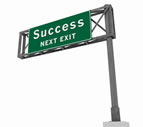 Hiring people with disabilities can help you overcome the challenge of finding skilled workers. By hiring people with disabilities, you can tap a unique group of non-traditional employees who are often unrecognized. A large variety of very talented workers within all sectors who have very strong skills and abilities are often undiscovered because of an unbalanced focus on their barriers to employment. Many employers do not recognize their skills and abilities and see their challenges as an overwhelming burden.
Hiring people with disabilities can help you overcome the challenge of finding skilled workers. By hiring people with disabilities, you can tap a unique group of non-traditional employees who are often unrecognized. A large variety of very talented workers within all sectors who have very strong skills and abilities are often undiscovered because of an unbalanced focus on their barriers to employment. Many employers do not recognize their skills and abilities and see their challenges as an overwhelming burden.
Hiring people with disabilities provides social benefits
Because of their misunderstood value in the workplace, some people with disabilities develop lowered self esteem and self efficacy. This leaves many people feeling unable to use their talent successfully. As a result, they have trouble making a successful transition into the workforce. By considering people with disabilities for employment, employers can help balance views of them, aid their transition, recognize their abilities to overcome these challenges and help introduce a unique group of talented people to the workforce.
People with disabilities offer valuable skills
People with a wide range of disabilities work on a daily basis to develop life skills to successfully deal with their challenges and achieve independence. Employers can help people adapt their unique coping skills these people use for daily living to allow them to be just as efficient as any other workers.
Throughout introductions and interviews it is important to consciously recognize a fair balance between applicants’ skills, abilities, experience, challenges and accommodations. Focus on skills and abilities. While learning about experiences, ask if or how their challenges have affected their work.
Ask what kind of accommodations these people have developed to deal with these challenges, how they have been able to develop new skills and what they have done to adapt to specific situations. By balancing these questions, potential employers gain a better understanding of the applicants’ full potential. This can give applicants a better confidence in their presentation during interviews.
Tips for transitioning people with disabilities to the workplace
Once a person with a disability has been chosen, it is important to consider their needs as they begin their work. Transitional flexibility can assist in the process very well. Employers should recognize that it might take a little extra time and support for people to explain their challenges, learn how the challenges might affect them in specific workplaces and create new skills to accommodate the challenges.
Introduce people with disabilities into the workplace and allow them to meet and work with experienced employees to feel welcome. Find ways to allow these people to comfortably transition into the workplace.
Casual or part-time positions can help give people time to find and adapt accommodations. They can also help employers learn about how people deal with their challenges.
Short-term and temporary positions can give employers the opportunity to recognize the extent to which disabilities affect worker’s daily productivity. At the same time, these positions provide ways for workers build workplace experience and show their strengths to employers.
Outsourcing can allow employers to use the skills and experiences of workers whose challenges might cause direct barriers to conventional employment.
Welcoming disabled workers and accepting accommodations helps to give workers confidence to develop a successful plan for how to effectively deal with their challenges beyond their transition. Throughout the process, others on the job can better understand and accept challenges by seeing how people accommodate them.
Through these processes, employers can learn how people with disabilities develop a unique set of creative skills to accommodate their challenges and adapt to specific workplace situations. The people they hire will gain a confident ability to present themselves, help teach others how to understand, accept and accommodate their challenges – those are skills the workers can use elsewhere. As these people gain general experience throughout their career, these skills can be shared with others, can be used to accommodate challenges on the job unrelated to their disabilities and can give good examples for how co workers can use similar skills throughout the workplace.
Together, these things can help people with disabilities confidently overcome their frustrations, can help them make successful transitions into the workplace and help them contribute to the workplace in a unique and useful manner. With a balanced view and flexible transition, this useful group of useful workers can also greatly help employers find people to accommodate to their own challenges finding skilled employees today.



